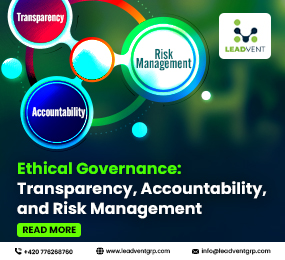Africa’s ESG and Climate Agenda: Charting a Course Toward Equitable Sustainability
Amid intensifying global discourse on climate action and responsible governance, Africa emerges as both a climate-vulnerable continent and a dynamic frontier for sustainable innovation. While historically contributing minimally to global greenhouse gas emissions, Africa is disproportionately impacted by climate change—experiencing acute environmental and socio-economic stressors. These realities have catalyzed a growing alignment between African governments, investors, and enterprises around the adoption of robust Environmental, Social, and Governance (ESG) frameworks.
Today, ESG is no longer perceived as a peripheral compliance obligation but rather a strategic enabler of long-term value creation. From infrastructure to agriculture, energy to finance, ESG principles are increasingly embedded in decision-making structures to enhance accountability, de-risk investments, and elevate societal outcomes.
Environmental Stewardship in a Climate-Sensitive Context
With climate risks escalating, many African nations have positioned climate adaptation and mitigation at the core of national development agendas. Landmark commitments to the Paris Agreement are now being operationalized through renewable energy investments, land restoration projects, and carbon market mechanisms. Countries like Morocco, Kenya, and South Africa are making tangible strides in solar, wind, and green hydrogen sectors—demonstrating the continent’s capacity for climate-forward development.
Social Equity as a Driver of Economic Resilience
Africa’s socio-economic fabric—characterized by a youthful population, high unemployment rates, and widespread inequality—demands that ESG strategies go beyond environmental goals. Social impact, including equitable access to health, education, and economic opportunity, is being woven into corporate sustainability plans. Initiatives focused on community engagement, inclusive hiring, and localized value chains are redefining what responsible business means across the continent.
Governance Reforms and Institutional Strengthening
Governance remains a pivotal factor in ESG implementation. Several African jurisdictions are advancing regulatory mechanisms to improve disclosure standards, enforce ethical conduct, and ensure greater corporate transparency. Efforts to align with international ESG taxonomies and reporting frameworks signal a maturation of Africa’s institutional capacity to support sustainable finance.
Still, systemic challenges endure. Gaps in ESG data availability, inconsistencies in regulatory enforcement, and limited access to green finance pose obstacles to scalability. However, these hurdles are being met with a spirit of innovation, regional cooperation, and strategic partnerships.
Conclusion
Africa’s evolving ESG and climate narrative underscores a broader shift from reactive policy to proactive transformation. The continent’s resilience lies not just in its resource potential, but in its ability to reimagine growth through a sustainability lens. By institutionalizing ESG, investing in climate-smart sectors, and empowering local communities, Africa is not merely participating in the global sustainability agenda—it is increasingly shaping it.
Takeaway Points:
- ESG integration in Africa is becoming central to sustainable economic transformation.
- Climate vulnerability is driving urgent environmental innovation and policy reform.
- Social dimensions—like employment, equity, and access—are critical to ESG impact.
- Strengthened governance and institutional frameworks are supporting ESG adoption.
- Africa’s leadership in sustainability is growing through homegrown solutions and international collaboration.
Learn more on our website: https://www.leadventgrp.com/event/esg-and-climate-africa-summit/register
For more information and group participation, contact us: [email protected] .
Leadvent Group - Industry Leading Events for Business Leaders!
www.leadventgrp.com | [email protected]
















